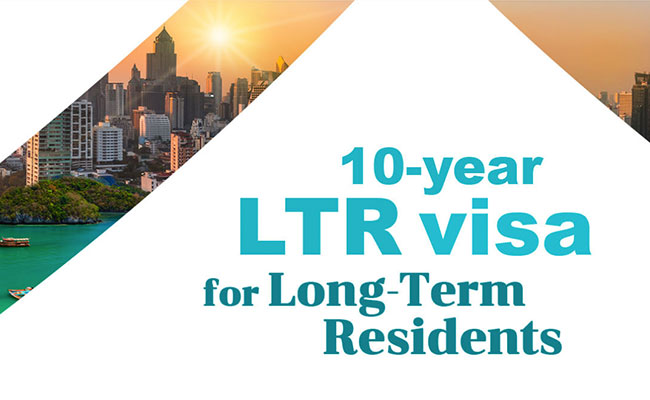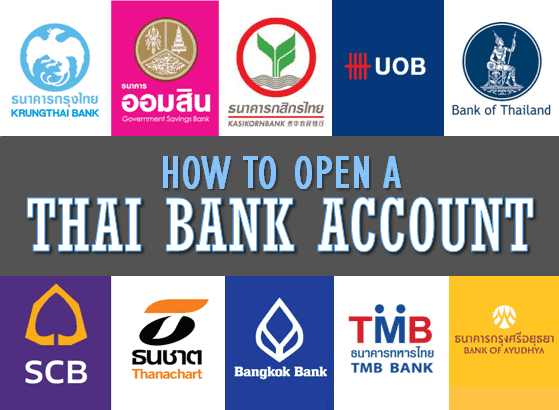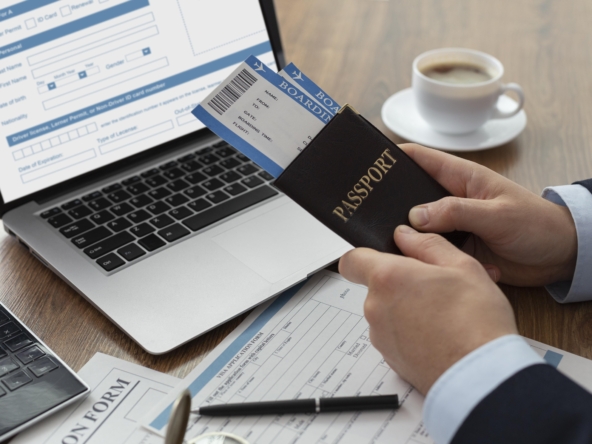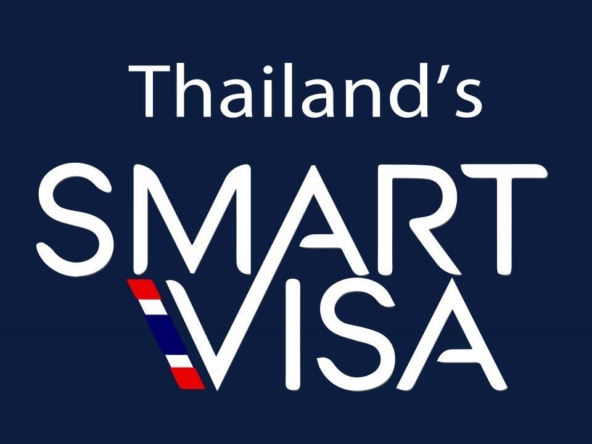Thailand’s visa landscape has evolved significantly in recent years, offering more options for foreigners who want to stay long-term and combine that with a property investment strategy. One of the most powerful routes is the LTR Visa — a 10-year multiple-entry visa created to attract high-potential foreigners such as investors, wealthy retirees, digital professionals and property buyers. While the LTR Visa doesn’t guarantee immediate residency or citizenship, it is a highly strategic tool for those seeking Thailand residency by investment, especially when paired with buying property in Thailand.
What is the LTR Visa?
The Long-Term Resident (LTR) Visa was officially introduced on 1 September 2022 by the Thai government to encourage long-stay foreigners who can contribute economically through investment, skills, or remote-working capacity. ltr.boi.go.th+3thailand.go.th+3image.mfa.go.th+3 The visa grants up to 10 years’ stay with multiple entries (and simplified re-entry and immigration reporting) under certain categories. ltr.boi.go.th+1
There are four main applicant categories:
Wealthy Global Citizens
Wealthy Pensioners (50+ age)
Work-From-Thailand Professionals
Highly-Skilled Professionals สถานกงสุลใหญ่ ณ นครลอสแอนเจลิส+1
What makes this relevant for your real-estate audience is that one of the qualification routes is investment in Thai property (or equivalent) — meaning the visa and property purchase strategy can align.
Key Benefits of the LTR Visa
Up to 10 years validity, multiple-entry. สถานเอกอัครราชทูต ณ กรุงวอชิงตัน+1
Work permission for many categories, remote work allowed for “Work-From-Thailand” Professionals. ltr.in.th+1
Relaxed reporting compared to typical visas (for example, annual reporting instead of every 90 days). image.mfa.go.th
Access to favourable tax treatment for highly-skilled professionals (e.g., 17% personal income tax under certain conditions). image.mfa.go.th+1
Helps foreigners combine long-term residence plans with property investment in Thailand — making it a strong option for those looking to buy property in Thailand visa-strategy style.
Eligibility & Investment Requirements (2025 updates)
Here are the main eligibility requirements — with some important recent updates.
Wealthy Global Citizens
Assets of at least USD 1 million globally. thailand.go.th+1
Investment of at least USD 500,000 in Thai government bonds, foreign direct investment (FDI), or Thai property. ThaiEmbassy.com+1
Previously required annual income of USD 80,000; updated 2025 rules have removed the strict income requirement for this category. Nairametrics+1
Wealthy Pensioners (Age 50+)
Proof of annual income of at least USD 80,000. Or if income is lower (e.g., USD 40,000–80,000), then investment of at least USD 250,000 in Thai bonds, property or FDI. ThaiEmbassy.com+1
Work-From-Thailand Professionals
Previously required income USD 80,000 and employer revenue threshold USD 150 million. Now updated to allow lower thresholds (USD 50 m) and no fixed 5-year experience requirement. austchamthailand.com+1
Highly-Skilled Professionals
Criteria include expertise in targeted industries, though 2025 updates removed the mandatory 5-year work experience requirement in many cases. Nairametrics+1
Health Insurance & Other Conditions
All LTR applicants must hold health insurance covering treatment in Thailand (minimum USD 50,000) or have social security or deposit at least USD 100,000. KPMG+1
Dependents: The rules have been relaxed — 2025 updates allow more flexible dependents around the primary visa holder. bgloballaw.com
How Property Investment Links With the LTR Visa
For your real-estate audience, this is a key section: how owning property in Thailand helps with visa pathways and how to position it.
One of the qualification routes for the Wealthy Global Citizen category is an investment of USD 500,000 in Thai government bonds, FDI or Thai property. That means buying property in Thailand can count toward satisfying the criteria for an LTR Visa. ThaiEmbassy.com+1
Even if property alone doesn’t guarantee the visa, it strengthens your “long-term commitment” to Thailand and your residence/business case — helpful when combined with the visa strategy.
For foreign buyers, especially in locations such as Phuket, investing in a well-located condo or villa can complement the visa application by showing real estate investment.
It’s wise to ensure the property is properly titled (freehold condo or leasehold structure), and that the ownership documentation aligns with other visa application documents (asset proof, funds, etc.).
Note: Property investment alone does not automatically grant the visa; you still must meet the other criteria and follow the approval process.
Recent 2025 Updates (Important!)
As of early 2025, several key changes have made the LTR Visa more accessible:
The income requirement for the Wealthy Global Citizen category has been removed — priority now is on investment and assets in Thailand. KPMG+1
Work-From-Thailand Professionals category: employer revenue threshold lowered and work-experience requirement removed. bgloballaw.com+1
Dependents rules expanded — potentially more family members allowed. Nairametrics
Visa fee remains USD 1,600 for application validity. สถานเอกอัครราชทูต ณ กรุงวอชิงตัน
These changes increase flexibility for property investors and long-stay foreigners to plan their relocation.
Step-by-Step Application Process
Determine the category you fit (Wealthy Global Citizen, Pensioner, etc.).
Gather documentation: asset statements (global), income proof (if required), investment proof in Thailand (property, bonds, FDI).
Ensure health insurance meets the needed threshold (USD 50,000 or equivalent).
Apply for endorsement letter from the Thailand Board of Investment (BOI) via their website. สถานกงสุลใหญ่ ณ นครลอสแอนเจลิส
Submit visa application (via established consulate/embassy or Thailand’s eVisa system) with passport, photos, supporting documents. thaiembassy.ch
After approval, move to Thailand, register and enjoy your visa benefits. Stay compliant (reporting, renewals).
If you used property investment in your eligibility, maintain ownership and ensure the investment remains valid as per category requirement.
Things to Consider / Potential Limitations
Owning property in Thailand is helpful, but not sufficient by itself to qualify for the LTR Visa. You still must meet the other criteria.
If you use property investment to qualify for the “USD 500,000 investment in Thai property” route, it’s best to choose assets with clear legal title, preferably in the structure suitable for foreigners.
There’s no guarantee of eventual Thai citizenship. This visa is a residence/long-stay tool, not a citizenship programme.
Make sure you stay compliant: immigration rules still apply (reporting, conditions of visa). Some Reddit applicants noted issues if documentation mismatches occur. Reddit
Changes in rules can occur — it’s essential to use up-to-date advice or immigration lawyer.
Final Thoughts: Why It’s a Strong Option for Property Investors
If you’re planning to buy property in Thailand and want more than just occasional visits — perhaps to relocate, live, or rent out — then using property investment in parallel with the LTR Visa is a smart strategy. For example:
Buy a freehold condo or villa in Phuket.
Use that investment to help satisfy the USD 500,000 Thai property investment requirement.
Apply as Wealthy Global Citizen for the LTR Visa.
Enjoy the benefits of long-stay, multiple entries, flexibility, and access to Thailand’s property market.
In short, by combining real-estate investment with long-term visa planning, you enhance both your lifestyle and your relocation/investment strategy in one of Southeast Asia’s most dynamic property markets.
If you’re ready to explore property investor visa Thailand options in Phuket and how to align your property purchase with the LTR Visa, I’d be happy to help you draft a dedicated article or start a content series on this.




